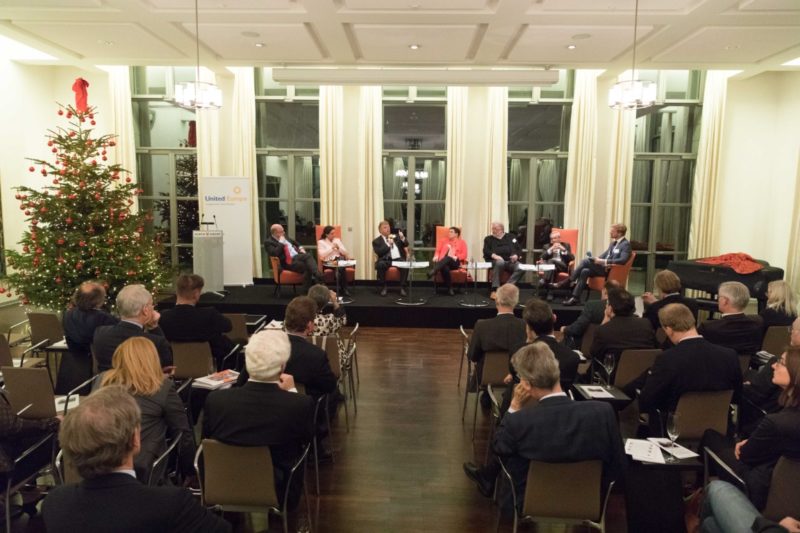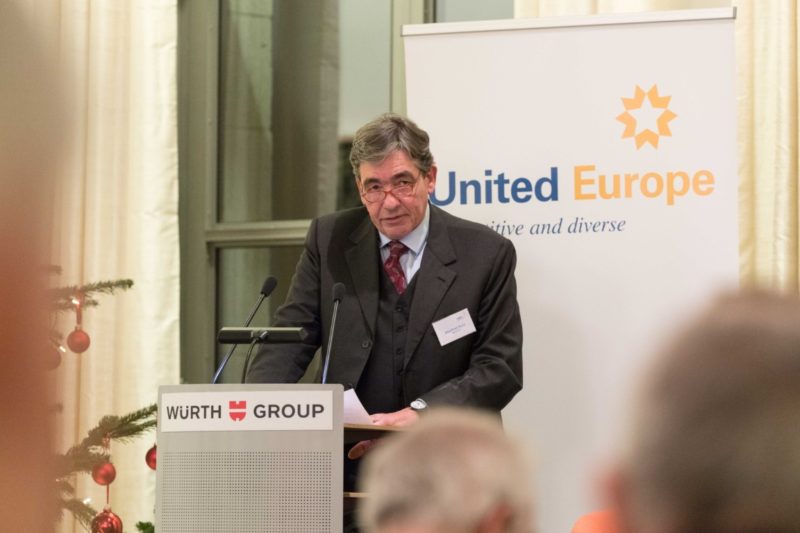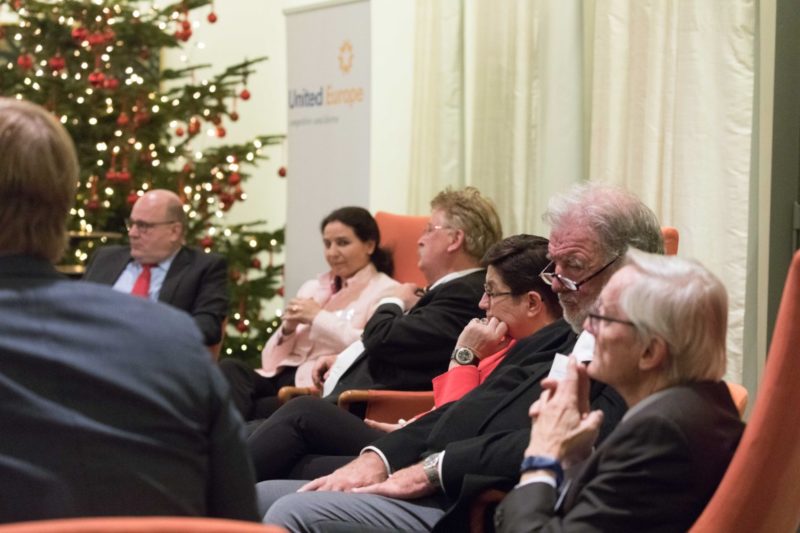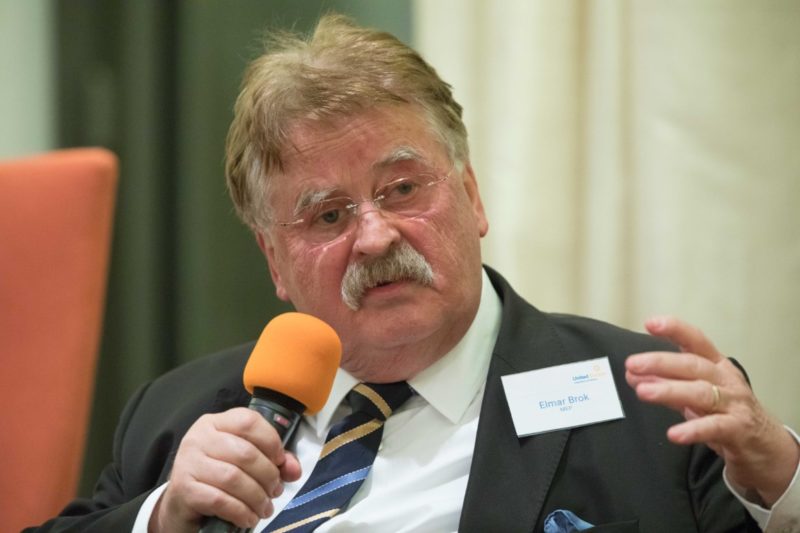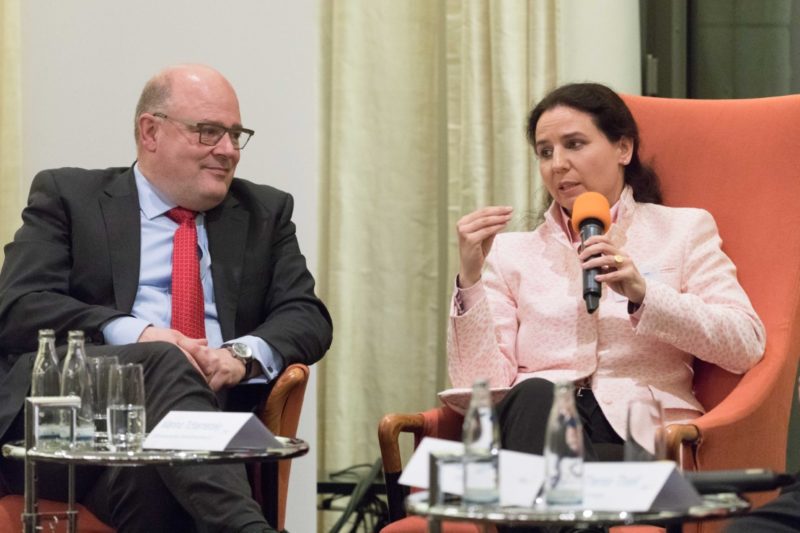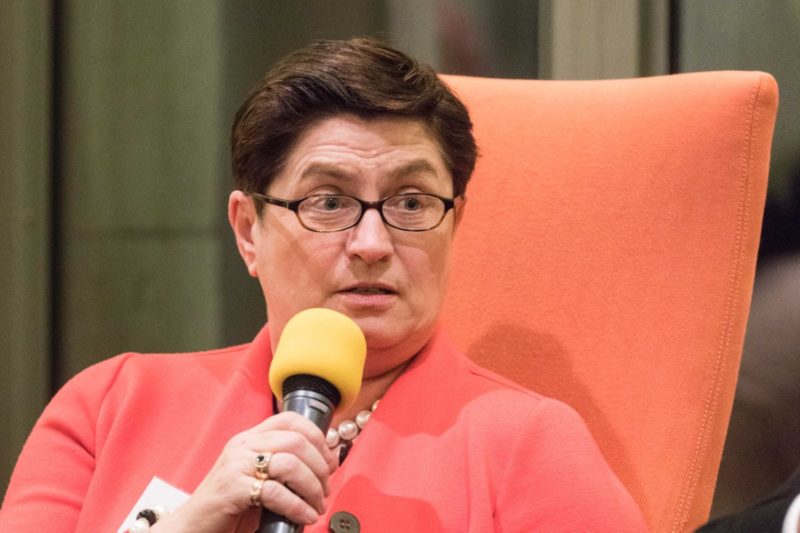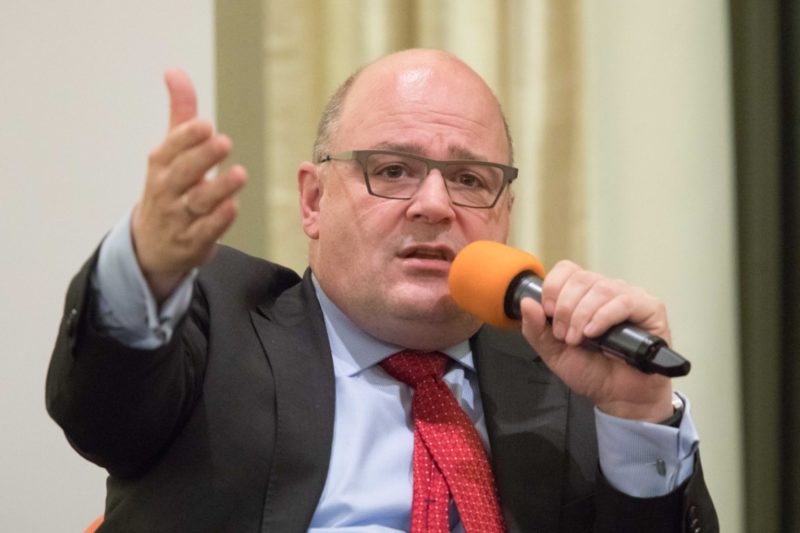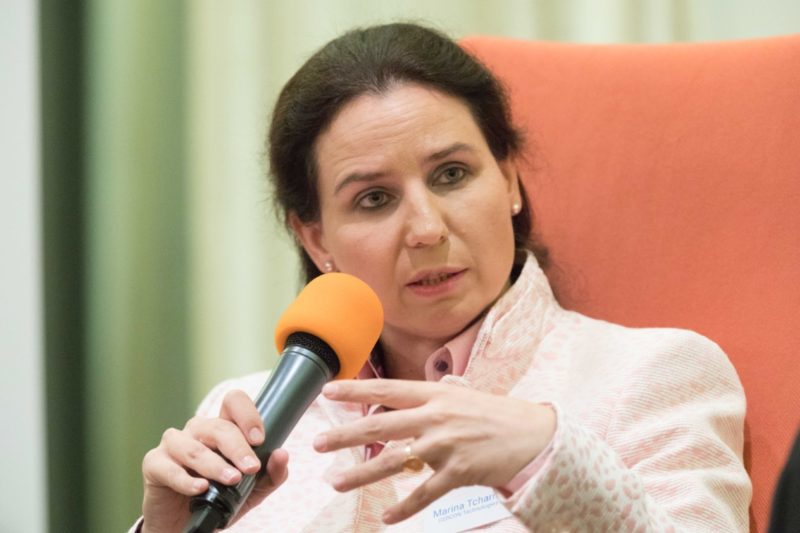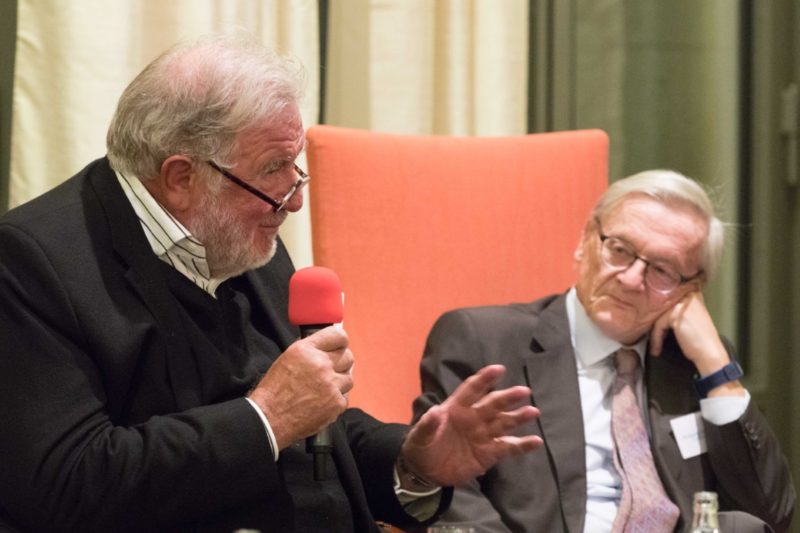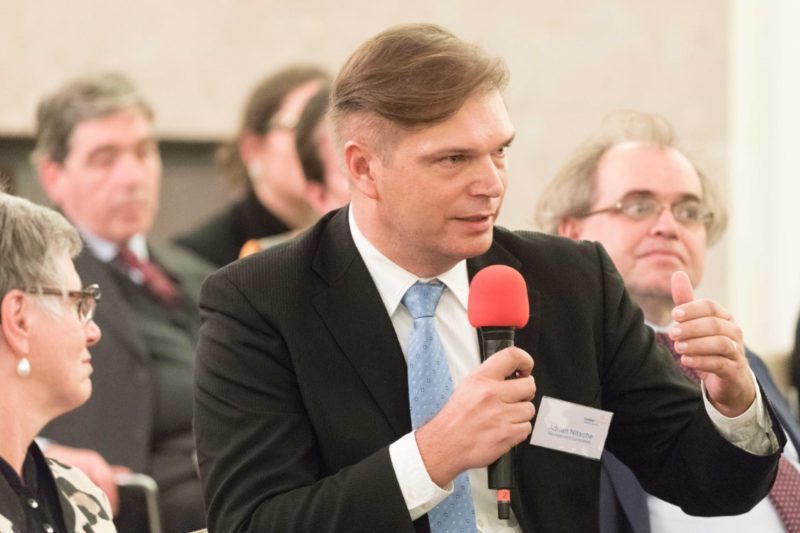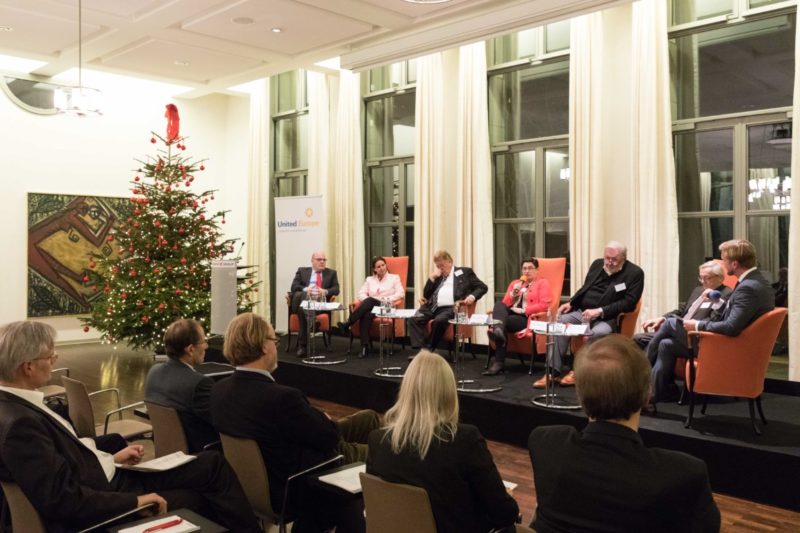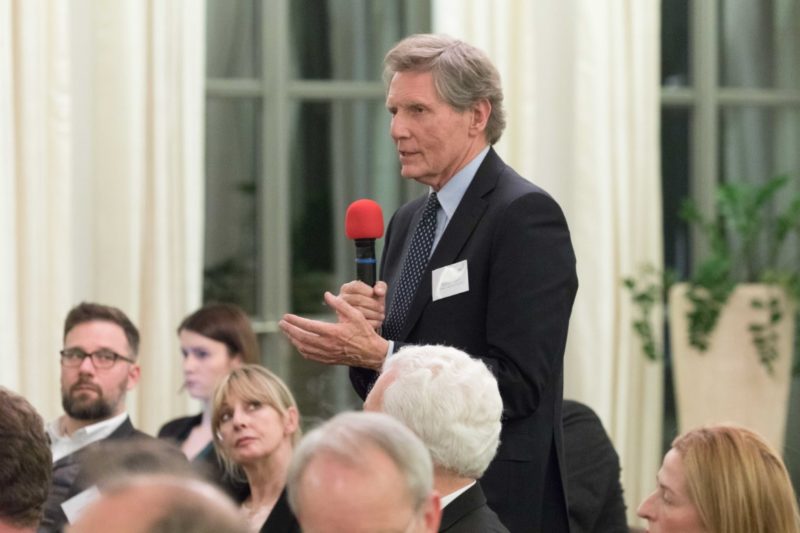On 5th December, a panel discussion entitled “The next five years: Expectations to the new EU Commission” took place following the annual general assembly of United Europe in Berlin. The discussion focused on the political guidelines of the new EU Commission and in particular the plan for a European “Green Deal” with which Ursula von der Leyen wants to make Europe climate-neutral by 2050.
Elmar Brok (CDU Federal Executive Committee, Union of European Federalists), Dr. Jürgen Großmann (founder United Europe), Steffen Kampeter (Managing Director of the Federation of German Employers’ Associations, BDA), Dr. Wolfgang Schüssel (President United Europe), Marina Tcharnetsky (Managing Director CEBCON Technologies GmbH, Vice President Club of European Women Entrepreneurs e.V.) and Dr. Marie-Theres Thiell (CEO innogy Hungary) discussed the issue.
The lively, pointed and controversial discussion was moderated by Gordon Repinski (Deputy Editor-in-Chief, RND Network).
The discussion began with a speech by Manfred Kurz, Berlin and Brussels representative of the Würth Group, host of the event in its beautiful representative office in the capital at Schwanenwerder.
A mere continuation ‘like this’ will certainly not suffice for the new EU Commission, Kurz said. A new self-conception will be necessary “which puts the individual citizen with all his creativity, his efforts and his competition at the centre”. The EU should not only grow, but above all must unite more closely politically. Size should not be confused with efficiency. Kurz pointed out that the different views on Europe between North and South, West and East could no longer be ignored and that, from his point of view, a reorganisation of the European Constitution was indispensable.
With the tectonic shifts of geo-economic weights towards Asia, the increasing authoritarian systems that threaten our democratic ideal of society, and climate change, the new EU Commission faces epochal challenges that Europe alone cannot master. It is now more important than ever for all European citizens to “consolidate our understanding of ourselves and lead us to a good future”, said Kurz. Würth professes his support for the European idea “because the European future in freedom and peace is our territory.”
In the following debate, the question was discussed of whether von der Leyen’s agenda on climate change is realistic and whether economic feasibility should not be more clearly in the foreground. Only countries with a strong economy are in a position to finance the costs of technological change and climate change and to develop innovative alternatives. That needs more support. There was the impression that von der Leyen had so far ignored the business world; so far there were no answers to questions from companies in her concept, for example, how to proceed with the European internal market and how to deal with the trade war with China. Nor is climate policy a market approach and geared not to innovation but to regulation.
The interests of the CEE countries must also be given greater consideration by the new Commission. Only in this way will it be possible to deepen European integration with the aim of creating a truly united Europe capable of meeting the challenges of the times, particularly in new technologies and climate change. Here, basic work still has to be done, as Western Europe has too often been the focus of attention in the past. The economic importance of the countries of Eastern Europe is increasing rapidly. They are increasingly emancipating themselves economically from the role of the “extended workbench” and increasingly contributing to innovation and growth in the EU.
The achievement of the set goals can only succeed with a common European spirit, a common basis, by intensively promoting the dialogue between East and West. Otherwise it would be difficult for the new Commission to cope with the tasks and challenges ahead.
It was stressed that the European Member States must learn that the great challenges such as terrorism, migration, climate change etc. can no longer be met by one state alone. To this end, cooperation and a willingness to compromise on the part of all countries are a basic prerequisite and essential. Although there has been enormous progress in European integration over the last three decades, the current political pace is too slow to meet the challenges ahead. On the whole, Brussels policy focuses too much on regulation and bans rather than on innovation. It would be better, according to one of the opinions, if the Commission did not focus all its energy solely on making Europe climate-neutral in 2050, but on tackling the problem globally and investing in Africa and South America in order to reduce emissions worldwide in the long term.
The question also arose as to whether it was right to opt out of nuclear power and coal energy at the same time without having a convincing concept for alternatives. The energy that keeps people, industry, our whole existence alive must come from somewhere. Points of complaints included the lack of realism in politics and that people and the economy are regulated too much. As a further point of criticism regarding politics it was brought up that constantly higher demands for even more taxpayer’s money and even more subsidies are oftentimes not very efficient and that politics should concentrate more on creating the adequate framework conditions for innovations, entrepreneurs and company founders who take calculated market risks. It remains to be seen whether the new EU Commission under Ursula von der Leyen will succeed in catching up and mastering the challenges ahead.
The discussion took place under Chatham House Rules.



